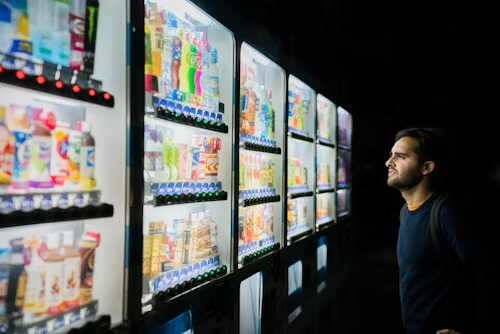How Sustainability is Shaping Beverage Industry Trends in 2024

How Sustainability is Shaping Beverage Industry Trends in 2024
The beverage industry is experiencing a significant transformation in 2024, with sustainability at the forefront of this change.¬
One of the most notable shifts is the widespread adoption of eco-friendly packaging. According to recent statistics, the global beverage market is projected to grow significantly, with a marked increase in demand for sustainable packaging solutions.¬
Both consumer preferences and regulatory pressures fuel this shift as governments worldwide implement stricter rules on plastic usage.
Biodegradable materials, aluminum cans, and paper-based bottles are replacing traditional plastic bottles. These alternatives are more environmentally friendly and also appeal to a growing segment of consumers who prioritize sustainability in their purchasing decisions.¬
Brands that embrace these eco-friendly options are reducing their environmental footprint and also positioning themselves as leaders in the green movement.
The drive towards sustainable packaging is also influenced by advancements in technology, which have made it easier and more cost-effective for companies to adopt eco-friendly solutions.¬
For example, innovations in biodegradable materials and recycling technologies are helping to close the loop in packaging production, making it easier for companies to reduce waste and promote a circular economy.¬
As this trend continues to gain momentum, eco-friendly packaging is set to be a defining characteristic ofbeverage industry trends in 2024.
Sourcing and Supply Chain Transparency
Sustainability in the beverage industry is not limited to packaging; it extends to every aspect of production, including sourcing and supply chain management. Consumers are increasingly interested in the origins of the products they consume, driving companies to prioritize transparency and ethical sourcing practices.¬
In fact, the demand for transparency has led to a surge in certifications like Fair Trade, organic, and non-GMO, which signal a brand’s commitment to responsible practices.
Supply chain transparency has become a crucial factor in building consumer trust. Companies are now using technology to trace their supply chains and provide detailed information about the origins of their ingredients.¬
This transparency is not just about satisfying consumer curiosity; it also plays a vital role in sustainability by allowing companies to identify and address areas where they can reduce their environmental impact.
For instance, companies are increasingly adopting blockchain technology to create tamper-proof records of their supply chains, ensuring that their sourcing practices are both ethical and sustainable.¬
This technology also helps in verifying the authenticity of sustainability claims, which is essential in a market where consumers are becoming more skeptical of greenwashing.
In 2024, sourcing and supply chain transparency are more than just buzzwords; they are critical components of a sustainable business model. Companies that prioritize these aspects are better positioned to meet the growing demand for responsibly produced beverages, making them key players in the evolving landscape of the beverage industry.
Water Stewardship and Resource Management
Water is a vital resource for the beverage industry, and its sustainable management has become a major focus in 2024. With increasing concerns about water scarcity and climate change, companies are adopting more responsible water stewardship practices to minimize their environmental impact.
Water-intensive industries like beverage production are under scrutiny, and companies are responding by implementing strategies to reduce water usage and improve efficiency. For example, some companies are investing in closed-loop water systems that allow them to reuse water multiple times before it is treated and released.¬
Others are supporting community water projects, helping to make sure there’s access to clean water in regions where it is scarce.
The beverage industry is also exploring innovative ways to reduce its overall resource consumption. This includes water, energy, and raw materials. By optimizing resource use, companies can reduce costs while also minimizing their environmental footprint.¬
This holistic approach to resource management is setting new standards for sustainability in the beverage industry.
As water becomes an increasingly precious resource, the importance of sustainable water practices will only grow. Companies that lead in this area will gain a competitive edge and also contribute to the long-term sustainability of the industry as a whole.
Plant-Based and Functional Beverages
The rise of plant-based and functional beverages is another trend shaping the beverage industry in 2024. As consumers turn out to be more health-conscious and aware of their surroundings, they are seeking out beverages that align with their values and lifestyle choices.
Plant-based beverages, such as almond milk, oat milk, and coconut water, have seen a surge in popularity. These drinks cater to a diverse range of consumers, including those with dietary restrictions and those who prefer vegan or vegetarian diets.¬
In addition to being perceived as healthier, plant-based beverages are also seen as more sustainable, as they typically have a lower environmental impact compared to traditional dairy products.
Functional beverages, which are formulated with ingredients that offer specific health benefits, are also gaining traction. Examples include drinks infused with probiotics, vitamins, and adaptogens, which are believed to enhance energy, improve digestion, and support mental clarity.¬
As consumers increasingly prioritize health and wellness, the demand for functional beverages is expected to grow.
The Role of Technology in Driving Sustainability
Technology is playing a pivotal role in advancing sustainability within the beverage industry. From improving production efficiency to enhancing supply chain transparency, technological innovations are helping companies achieve their sustainability goals.
Artificial intelligence (AI) is one of the most impactful technologies in this space, enabling companies to optimize their production processes, reduce waste, and predict consumer trends. AI-driven analytics allow companies to make data-informed decisions that enhance sustainability, such as adjusting production schedules to minimize energy use or identifying opportunities to reduce packaging waste.
Blockchain technology is also making a significant impact on supply chain management, providing transparent and tamper-proof records of a product’s journey from farm to shelf. This level of transparency is essential for verifying sustainability claims and building consumer trust.
In addition to AI and blockchain, advancements in sustainable materials and recycling technologies are helping companies reduce their environmental impact. For example, innovations in biodegradable packaging and closed-loop recycling systems are making it easier for companies to adopt eco-friendly practices.
All in all, technology is a driving force behind the sustainability trends shaping the beverage industry in 2024. Companies thatleverage these innovations are better positioned to meet consumer demands for eco-friendly products and maintain a competitive edge in a rapidly evolving market.
The beverage industry in 2024 is undergoing a profound transformation, driven by the growing emphasis on sustainability. From eco-friendly packaging and transparent supply chains to water stewardship and the rise of plant-based beverages, the industry is embracing practices that are better for both people and the planet. As technology continues to drive these changes, companies that prioritize sustainability will lead the way, setting new standards for the future of the industry.







